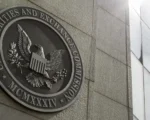Lejilex Challenges SEC’s Regulatory Approach Regarding Token Listings
On Wednesday, a Texas-based cryptocurrency firm, Lejilex, alongside the Crypto Freedom Alliance of Texas (CFAT), filed a lawsuit against the U.S. Securities and Exchange Commission (SEC). The lawsuit alleges that the SEC’s regulatory oversight of the cryptocurrency industry exceeds its legal jurisdiction and lacks a clear statutory mandate. At the heart of the dispute is the classification of digital assets traded on exchanges, with Lejilex and CFAT seeking clarity from the court on whether these assets should be considered securities under U.S. law.
Lejilex, headquartered in Fort Worth, Texas, aims to establish Legit.Exchange, a cryptocurrency platform that intends to list various digital assets, including those that the SEC has previously identified as securities. Despite the SEC’s stance on certain cryptocurrencies, Lejilex plans to include them for trading on its platform. This move challenges the SEC’s position and highlights the ongoing debate within the cryptocurrency industry regarding regulatory oversight and classification of digital assets.
The lawsuit filed by Lejilex and CFAT reflects broader concerns within the cryptocurrency community regarding regulatory clarity and the SEC’s approach to overseeing the market. By seeking legal intervention to clarify the status of digital assets traded on exchanges, the plaintiffs aim to address the uncertainty surrounding cryptocurrency regulation and establish clearer guidelines for industry participants and regulators alike.
Lejilex wants the court to rule that listing pre-existing tokens will not violate securities laws. “We wish we were launching our business instead of filing a lawsuit, but here we are,” Lejilex co-founder Mike Wawszczak said in a statement.A spokesperson for the SEC did not immediately reply to a request for comment.Both Coinbase and Binance have denied the SEC’s allegations.

A judge in July rejected the argument that an ongoing commitment is required to make an asset a security in the SEC’s case against Ripple Labs. Another judge overseeing the regulator’s lawsuit against Terraform Labs found the “major questions” doctrine does not apply to the cryptocurrency industry. Both of those cases were brought in New York.
CFAT asked the court to block the SEC from suing its members, and said the agency’s assertion of jurisdiction over digital assets has made it harder to convince Texas lawmakers to embrace “sensible policies.” The group launched last year and counts Coinbase and venture capital firm Andreessen Horowitz’s a16z crypto fund as members.
The case was assigned to Judge Reed O’Connor, an appointee of Republican former President George W. Bush with a track record of ruling in favor of conservative litigants challenging laws and regulations governing guns, LGBTQ rights and healthcare. Paul Clement, former U.S. Solicitor General under President George W. Bush, represents the plaintiffs.

















